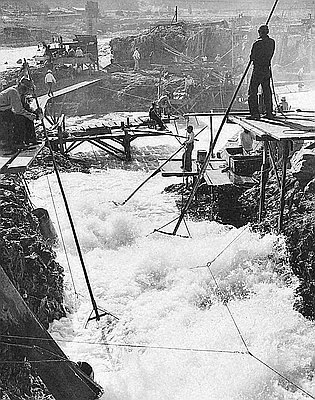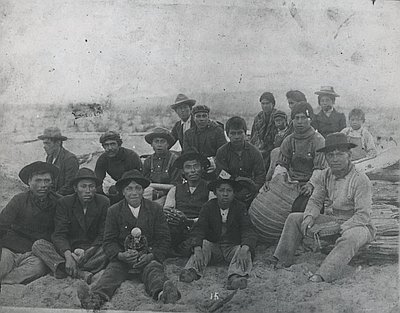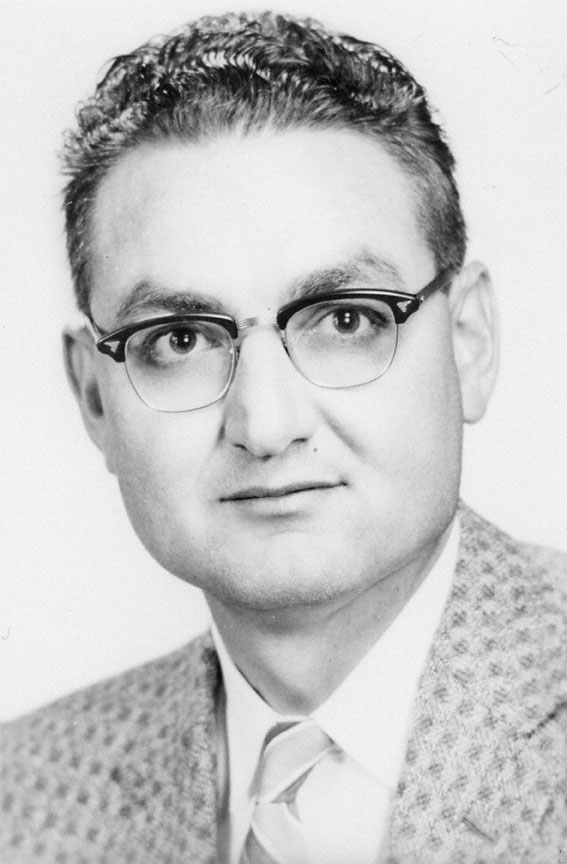- Catalog No. —
- OrHist 1208
- Date —
- May 31, 1989
- Era —
- 1950-1980 (New Economy, Civil Rights, and Environmentalism), 1981-Present (Recent Oregon History)
- Themes —
- Environment and Natural Resources, Government, Law, and Politics, Native Americans
- Credits —
- Oregon Historical Society
- Regions —
- Columbia River
- Author —
- James Strassmaier, Oral Historian
Robert Belloni's Oral History
Robert Belloni was interviewed by James Strassmaier of the Oregon Historical Society as part of the U.S. District Court of Oregon Series. In this transcribed excerpt of the interview, he recalls his involvement with litigation surrounding the conflict over Indian, treaty-based fishing rights on the Columbia River.
In Sohappy v. Smith/U.S. v. Oregon (1969) Judge Belloni made a landmark ruling guaranteeing Indian fishers with a “fair and equitable share” of the salmon that passed by the “usual and accustomed” fishing sites of the Yakama, Umatilla, Nez Perce, and Warm Springs tribes. Judge Belloni also held that the states could only regulate the fishing of the tribes with treaty-based fishing rights when they could prove that changes in tribal harvests were “reasonable and necessary for conservation.” His ruling forced the reorganization of the Columbia River salmon fishery, causing many non-Indian fishers to scale back harvests.
In order to facilitate compliance with his ruling and avoid continual litigation between Columbia River fishing interests, Judge Belloni also mandated the creation of a management plan for the Columbia River fishery—one that included the tribes, the states, and the federal government. Before the formal plan was officially implemented, Judge Belloni had removed himself from his role in the case—citing his own inability to remain neutral. In 1988, when the tribes, states, and federal fisheries agencies finally agreed to the Columbia River Fish Management Plan, U.S. District Court Judge Malcolm F. Marsh had assumed the role of oversight Judge. As of July 2003, Judge Marsh is still presiding over the management plan and other Columbia River fisheries issues.
Because Judge Belloni’s “fair and equitable” ruling was ambiguously worded, litigation between Indian and non-Indian fishers continued. In 1974, Judge George W. Boldt clarified matters in U.S. v. Washington, by defining a “fair and equitable share” of salmon to mean one half of the allowable fish harvest from runs accessible from the tribes’ “usual and accustomed” fishing sites. Although Judge Boldt’s ruling was the result of fishing conflicts in Washington’s Puget Sound, it was applied to the Columbia River fishery—just as Judge Belloni’s ruling was applied to the Puget Sound fishery.
Further Reading:
Cohen, Fay G. Treaties on Trial: The Continuing Controversy over Northwest Indian Fishing Rights. Seattle, Wash., 1986.
Cone, Joseph and Sandy Ridlington, eds. The Northwest Salmon Crisis: A Documentary History. Corvallis, Oreg., 1996.
Ulrich, Roberta. Empty Nets: Indians, Dams, and the Columbia River. Corvallis, Oreg., 1999.
Wilkinson, Charles. Messages from Frank’s Landing: A Story of Salmon, Treaties, and the Indian Way. Seattle, Wash., 2000.
Written by Joshua Binus, © Oregon Historical Society, 2004.
Related Historical Records
-
Indians Fish at Celilo Falls
Celilo Falls was an important center for native trade, culture, and ceremony. For at least 11,000 years, tribes throughout the region, and from as far away as the …

-
What Is Different about Native American Fishers?
It is astonishing the number of salmon which ascend the Columbia yearly and the quantity taken by the Indians....The Indians are quite expert in taking them.—Elkanah Walker to …

